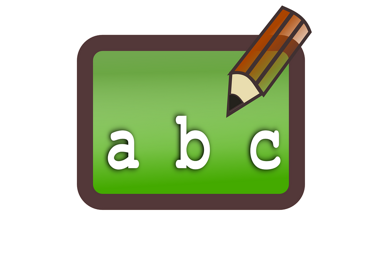| A a |
(ah) |
Sounds like the a in father when followed by a single consonant. Otherwise between the
a in bat and the u in but. |
| B b |
(bay) |
Pronounced as in English, except at the end of a word when it is pronounced like p. |
| C c |
(tsay) |
Pronounced like ts in cats. The combination ch is pronounced like a hard h when
followed by a, o, or u. Otherwise it is pronounced somewhat like the h in huge. The
combination sch is pronounced like sh in English. The combination ck is
pronounced like k.
|
| D d |
(day) |
Pronounced as in English, except at the end of a word when it is pronounced like t. |
| E e |
(ay) |
Pronounced like e in bed when followed by more than one consonant. If stressed and followed
by a single consonant, like ay in day. If unstressed, like the a in pizza. Unlike
in English, e is pronounced at the end of a word.
|
| F f |
(eff) |
Pronounced as in English. |
| G g |
(gay) |
Pronounced like g in go. At the end of a work, it is pronounced like k. In the combination
ig at the end of a word, the g is pronounced similar the h in huge.
|
| H h |
(hah) |
Pronounced as in English. Silent in the combination eh when part of the
same syllable.
|
| I i |
(ee) |
Pronounced like i in bid when followed by more than one consonant. Otherwise like the ee in see.
Note: The combinations ie and ih are also pronounced like the ee in see. |
| J j |
(yot) |
Pronounced like y in yes. |
| K k |
(kah) |
Pronounced as in English. |
| L l |
(ell) |
Pronounced as in English. |
| M m |
(em) |
Pronounced as in English. |
| N n |
(en) |
Pronounced as in English. |
| O o |
(oh) |
Pronounced like o in hope or o in hop. |
| P p |
(pay) |
Pronounced as in English. |
| Q q |
(koo) |
Always in the combination qu and pronounced like kv. |
| R r |
(err) |
Pronounced as in English. Many speakers pronounce r with a more gutteral
sound. In some areas er at the end of a word is pronounced ah.
|
| S s |
(ess) |
Before p and t pronounced like sh. At the beginning of a word or between vowels,
pronounced like English z. Otherwise it is pronounced like s in best. The character ß
represents a double s and is also pronounced like the s in best.
|
| T t |
(tay) |
Pronounced as in English. The combination th is also pronounced like t. |
| U u |
(oo) |
Pronounced like oo in moon when followed by a single consonant. Pronounced like the
u in put when followed by more than one consonant.
|
| V v |
(fow) |
Pronounced like the f in few. |
| W w |
(vay) |
Pronounced like English v. |
| X x |
(iks) |
Pronounced like ks. |
| Y y |
(ewpsillon) |
Pronounced as in English. |
| Z z |
(tset) |
Pronounced like ts in cats. |
